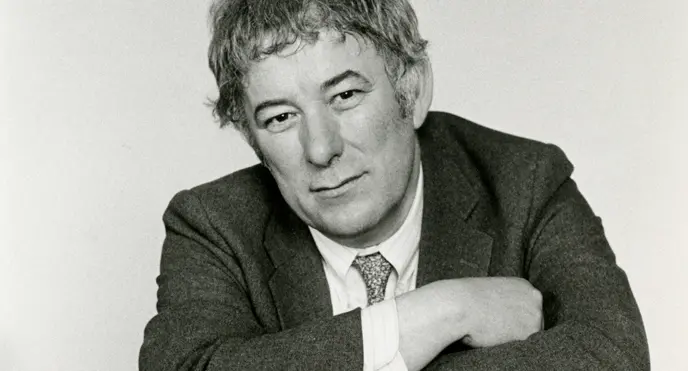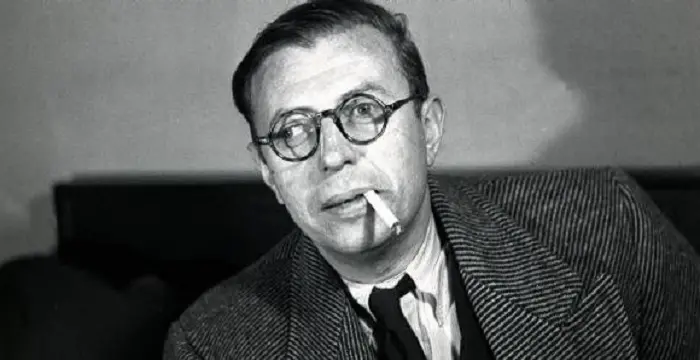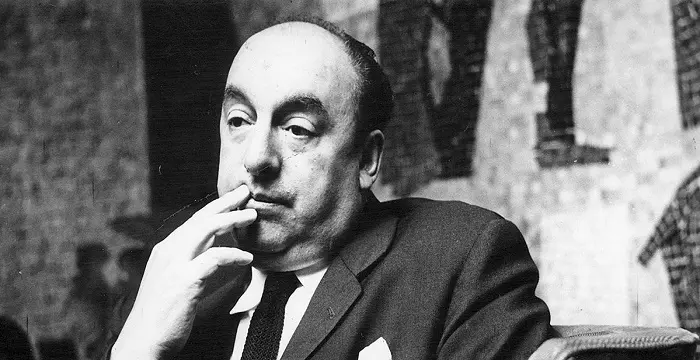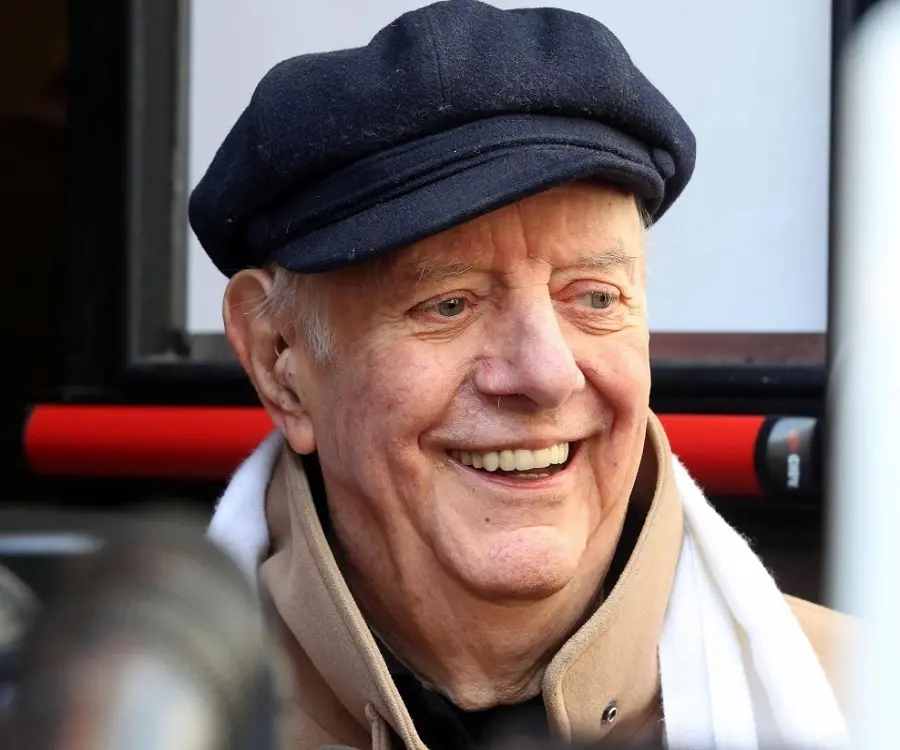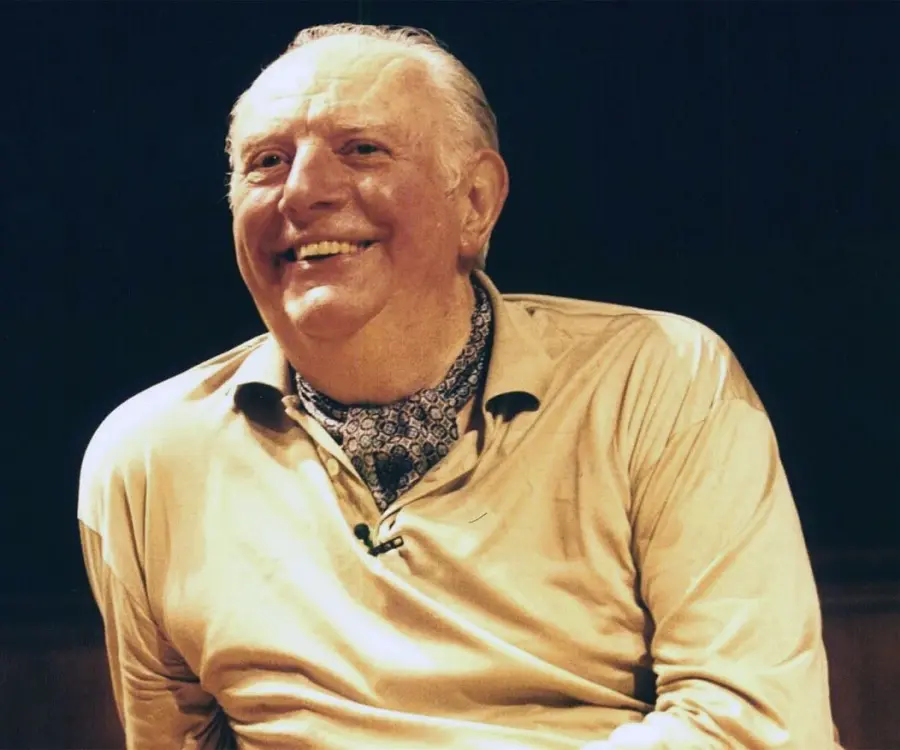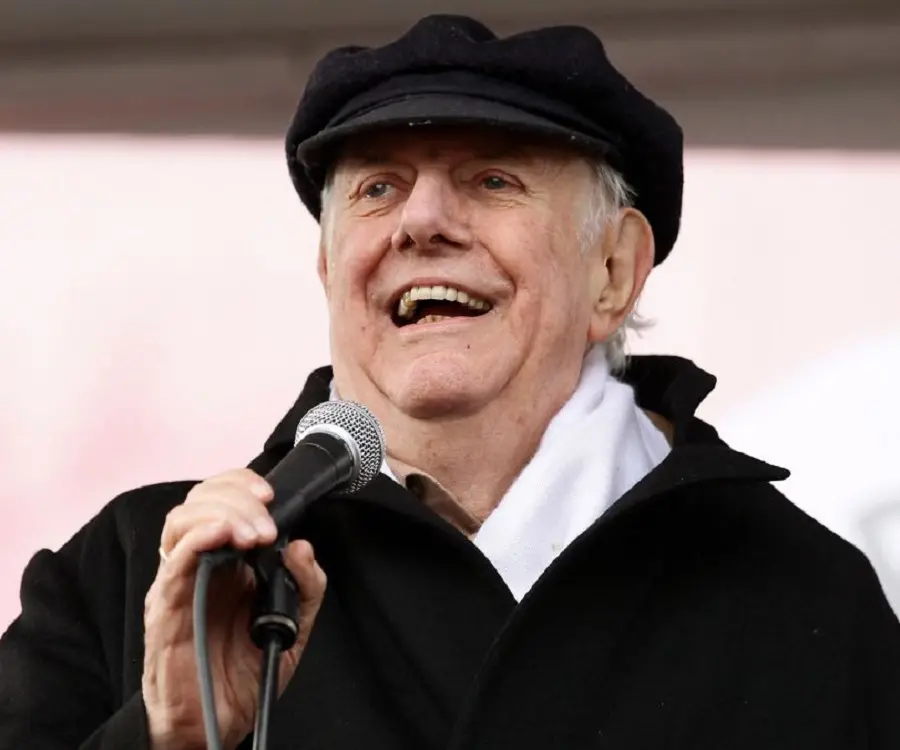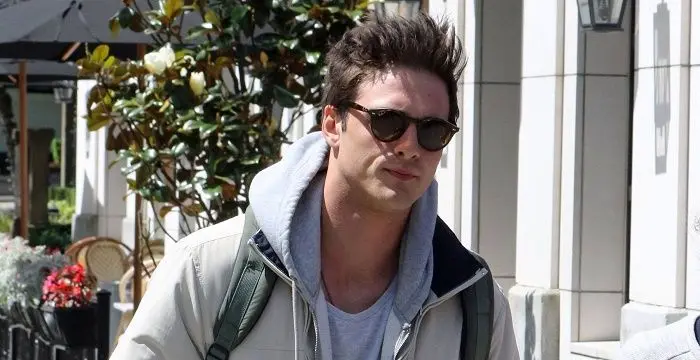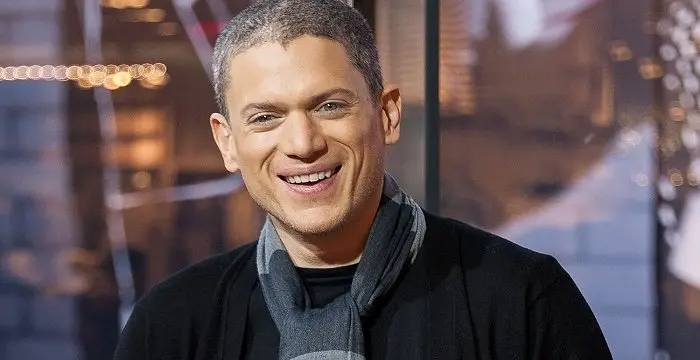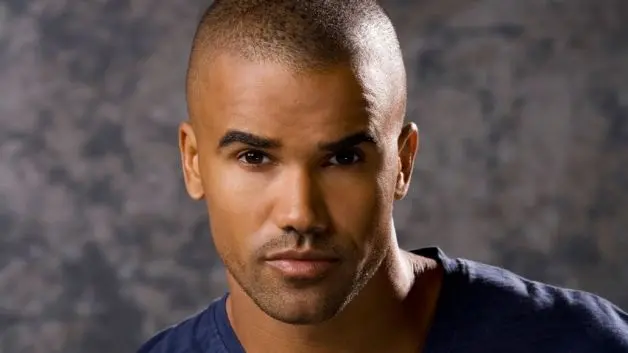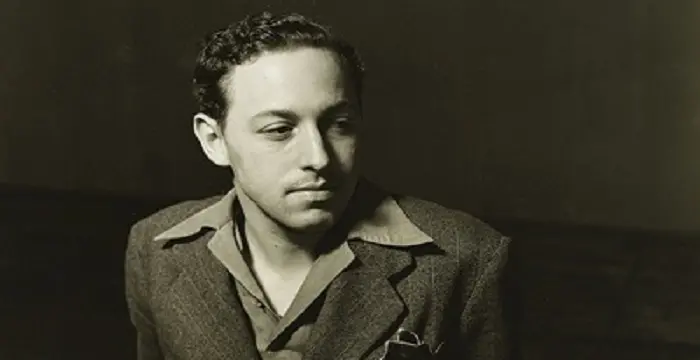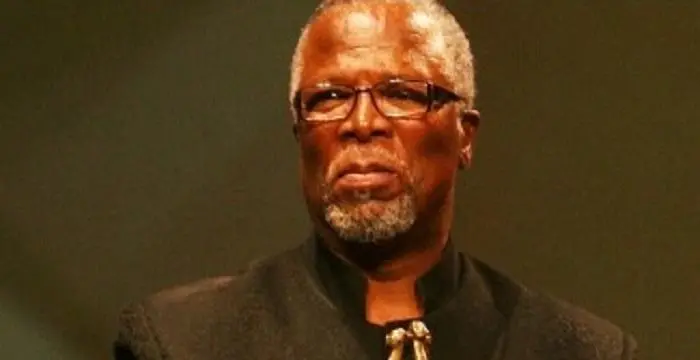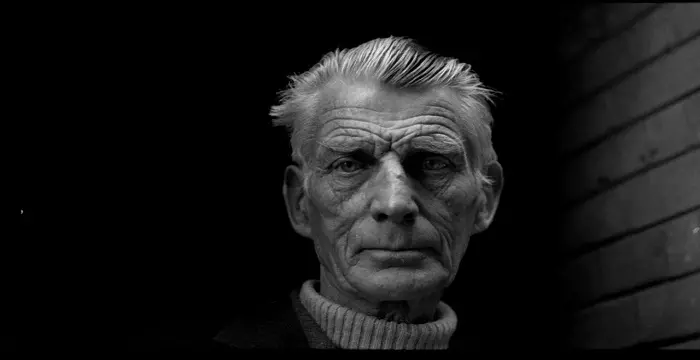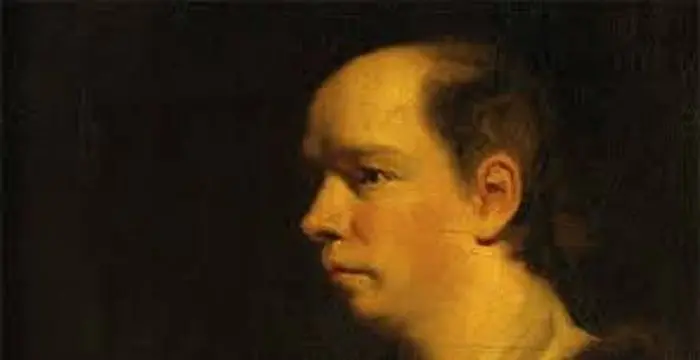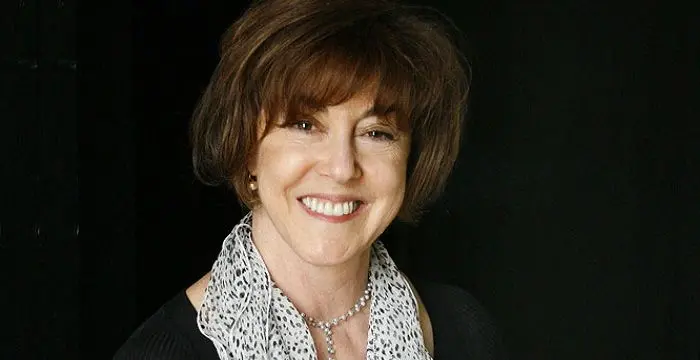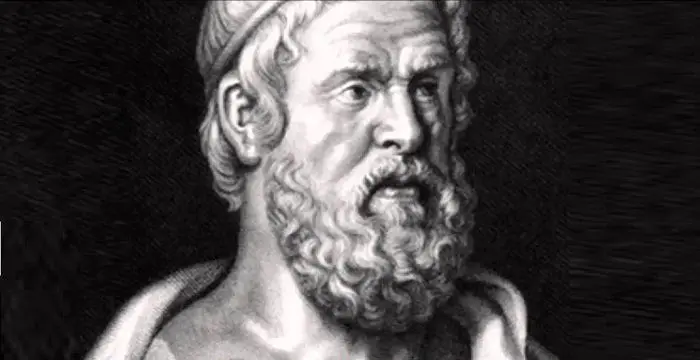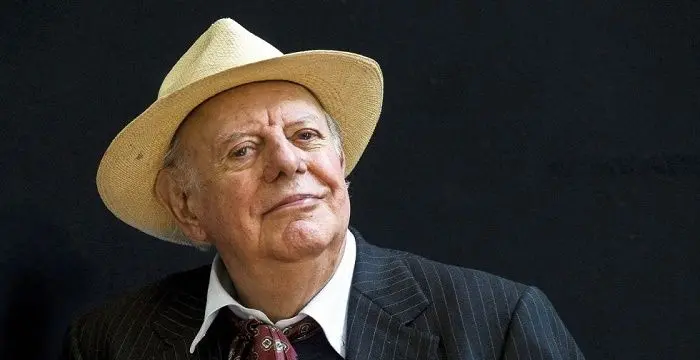
Dario Fo - Film & Theater Personalities, Facts and Family
Dario Fo's Personal Details
Dario Fo is a Nobel Prize winning Italian playwright and an eminent actor and theater director
| Information | Detail |
|---|---|
| Birthday | March 24, 1926 |
| Nationality | Italian |
| Famous | Nobel Laureates In Literature, Film & Theater Personalities, Actors, Playwrights |
| Spouses | Franca Rame |
| Siblings | Fulvio Fo |
| Childrens | Jacopo Fo |
| Universities |
|
| Birth Place | Sangiano |
| Religion | Atheism |
| Height | 178 |
| Gender | Male |
| Father | Felice Fo |
| Mother | Pina Rota Fo |
| Net Worth | $88.9 million as of Jan 15,2017 |
| Sun Sign | Aries |
| Born in | Sangiano |
| Famous as | Playwright |
// Famous Nobel Laureates In Literature
Seamus Heaney
Nobel Laureate Seamus Heaney was an Irish poet, playwright and translator. Know about his profile, childhood, life and timeline in the biography below.
Jean-Paul Sartre
Jean-Paul Sartre was a great existentialist philosopher of the 20th century. Check out this biography to know about his childhood, family life, achievements and other facts related to his life.
Pablo Neruda
Pablo Neruda was a Chilean poet, politician and Nobel laureate. Go through this biography to learn more about his profile, childhood, life and timeline.
Dario Fo's photo
Who is Dario Fo?
Dario Fo is a Nobel Prize winning Italian playwright and an eminent actor and theater director. Born in Lombardy's Province of Varese, Italy, he learnt the art of storytelling from most unusual sources, such as, his farmer grandfather who traveled around in a big wagon selling his produce, fishermen and glassblowers who came to gossip in the piazzas and taverns. As a result, when he took up pen to write scripts, they became instantly popular. He depends much on improvisation and his style of writing resembles that of medieval storytellers. All his life, he and his wife Franca Rame have worked together to produce plays that uphold the dignity of the oppressed and in doing so they have provoked those in authority to such as extent that they have not only been hounded by Italian government, but have also been denied entry into USA. In spite of that Fo has kept on working and many of his seventy odd plays have been translated into thirty languages. Today, he is one of most widely performed playwrights and has become an important figure in today’s world theater.
// Famous Actors
Jacob Elordi
Jacob Elordi is an Australian actor. Let’s take a look at his childhood, family, personal life, career, etc.
Wentworth Miller
Wentworth Miller is an American actor and screenwriter who achieved recognition for his role in the TV series ‘Prison Break’.
Shemar Moore
Shemar Moore is a model turned actor best known for his role in the television series ‘The Young and the Restless’. This biography of Shemar Moore provides detailed information about his childhood, life, achievements, works & timeline.
Childhood & Early Life
Dario Fo was born on March 24, 1926 at Leggiuno Sangiano, a town in the Province of Varese in Italy. He was the eldest child of Felice and Pina Rota Fo. As Felice was a station master for the Italian Railway and was transferred regularly, the family did not stay in one place for long, but moved each time he got a new posting.
Each member of Dario’s family was artistically inclined. Apart from working as a station master, Felice was also an amateur actor and a socialist. Pina Rota wrote a book, titled ‘Il paese delle rane’ on the history of her home town. Moreover, his younger brother Fulvio Fo later became a theatre administrator and sister Bianca Fo Garambois, a writer.
As a child, Dario often visited his maternal grandfather, a farmer in Lomellina. During these visits, he accompanied his grandfather as he travelled around the countryside selling his produce. To attract the attention of the buyers his grandfather would often tell amazing stories and insert in them current news and anecdotes. Sitting beside him Dario had his first lesson in storytelling.
Dario was also fond of sitting in taverns or piazzas visited by master glassblowers and fishermen. He would listen intently as they exchanged spicy and long political news that often bordered on satire. They provided the second lesson in storytelling.
In 1940, Dario was admitted to the Accademia di Belle Arti di Brera, in Milan. Sometime now, he is conscripted by the fascist army of Mussolini, but deserted his post towards the end of the Second World War. For some time, he lay hidden in a small attic room.
It is believed that he and his family were actually working for the anti-fascist resistant groups. Dario helped his father to smuggle the British soldiers as well as refugees, some of whom were Jewish scientists, into Switzerland, while his mother nursed the wounded.
After the war, Dario returned to Accademia di Belle Arti di Brera and at the same time enrolled at Politecnico di Milano to study architecture. He was soon disillusioned with it and left without acquiring the degree.
Sometime now, he also had a nervous breakdown and as a therapy started painting and joined the piccoli teatri or the small theatre movement. He now concentrated on stage design and gained recognition for his off the cuff monologues.
Career
Dario Fo’s career took off in 1950, when he caught the attention of Franko Parenti with his rendering of Cain and Abel. Later he was invited by Praneti to take part in his variety show. He impressed the audience with the stories of his upbringing; they were witty but original. Their collaboration lasted until 1954.
In 1955, Fo along with his wife, Franca Rame, moved to Rome in the hope of getting chance in films. Here he started working as a screenwriter for many well-known directors. He finally had his debut in ‘Lo svitato’, a film directed by Carlo Lizzani.
The couple returned to Milan in 1958 and since then has been living here. In 1959, the couple established Campagnia Dario Fo–Franca Rame, a performing company for which Fo wrote scripts, directed the play, acted, designed costumes and stage paraphernalia, while Rame looked after the administration.
It was ‘Gli arcangeli non giocano al flippe’ (Archangels Don't Play Pinball), a two act play first staged in 1959, which brought them international fame. It not only received great reviews in Italy, but was equally appreciated in other countries like Spain, Sweden, Yugoslavia, Poland and Netherland.
In 1962, they had another hit in a satirical show called ‘Canzonissima’. The sketch was aired by the Italy’s national public broadcasting company RAI. It drew million of viewers and at the same time generated great controversies, as a result of which Fo was effectively banned from appearing on Italian television for fourteen years.
His next play ‘Isabella, tre caravelle e un cacciballe’ also created great controversy because it tried to demystify Columbus. He received threatening letters and was physically assaulted in Rome and even had garbage thrown at him.
In 1968, Fo moved away from official state theater to establish Associazione Nuova Scena and began to operate from outside the state structure. They performed in community centers and workers’ unions. ‘Grande pantomima con bandiere e pupazzi piccoli i medi’ (Grand Pantomime with Flags and Small and Middle-sized Puppets) is one of his noted creations of this era.
In 1970, Fo and Rame established their third theatre group Collettivo Teatrale ‘La Comune’. For three years, it was based in an abandoned workshop in the suburbs of Milan. The group based their plays mostly on contemporary issues. ‘Morte accidentale di un anarchico (Accidental Death of an Anarchist)’ was written in this period.
In 1973, Franca Rame was abducted, tortured, raped and threatened by agents of Italian federal police for her political activism. Fo was also arrested during a show in November. In spite of that, the couple kept on producing more provocative plays and continued to tour around Lombardy and Veneto. “Mama Togni’ is one such play.
By and by, they began to provoke foreign governments as well. In 1980, The United States government barred both of them from performing at Festival of Italian Theatre, held in USA. It created uproar among theatre lovers.
In May 1980, ‘An Evening without Dario Fo and Franca Rame’ was held in New York. It was attended by many well-known intellectuals, including Arthur Miller, Bernard Malamud, Richard Foreman and Martin Scorsese. The event featured reading of Fo’s letter and the first act of his play ‘Non Si Paga! Non Si Paga!’
In 1983, the US authorities, barred Fo and Rame from entering the country once again. This time the charge was that they aided the terrorists. In 1987, they were accused of blasphemy by the Vatican for their play ‘The First Miracle of Infant Jesus’.
Nonetheless, Fo continued writing on contemporary issues such as Tiananmen Square tragedy, AIDS, Gulf War and even genetic experiment. In all, he has written seventy plays; some of which are co-authored by Rame. His latest work, ‘C'é un re pazzo in Danimarca’ (There's a mad king in Denmark), was written in 2015.
Major Works
Morte accidentale di un anarchico (1974; Accidental Death of an Anarchist) is undoubtedly one of Fo’s most popular works. Considered a classic 20th century theatre, it has been performed in more than 40 countries across the world. It is a farce based on the life of anarchist Giuseppe Pinelli; but the events are all fictional.
’Non si paga, non si paga!’ (1974; We Can’t Pay? We Won’t Pay!) is another of his internationally acclaimed plays. It was translated in English in 1975 and by 1990, it had been performed in 35 countries. It is a Marxist political farce about backlash by the consumers against high prices.
As an actor, Fo is best known for his ‘Mistero Buffo’ (1973; Comic Mystery). The drama is based on medieval mystery plays. However, it was so topical that the shows changed with the change of venue.
Awards & Achievements
In 1997, Dario Fo received the Nobel Prize in Literature. While awarding the prize, the Swedish Academy praised his style of emulating “the jesters of the Middle Ages in scourging the authority “and also for “upholding the dignity of the downtrodden". His selection was criticized both by the Italian government and the Vatican.
Personal Life & Legacy
Dario Fo married Franca Rame on June 24, 1954. She hailed from a theatrical family and was an actress and writer in her right. The couple had a close bonding and they worked together in all projects. She died on May 29, 2013 at the age of 83.
Dario and Franca’s only child, Jacopo Fo, is also a writer, actor and director. Born on March 31, 1955, he worked with his parents to try and educate the people about AIDS, sexual repression and contraception. His book ‘Lo Zen e l'arte di scopare’ (Zen and the Art of Fucking, 1972) sold more than 70,000 copies.
// Famous Film & Theater Personalities
Jacob Elordi
Jacob Elordi is an Australian actor. Let’s take a look at his childhood, family, personal life, career, etc.
Wentworth Miller
Wentworth Miller is an American actor and screenwriter who achieved recognition for his role in the TV series ‘Prison Break’.
Skai Jackson
Skai Jackson is an American child actress with huge fan following. Find more about her family & personal life, relationships, facts and more.
Dario Fo's awards
| Year | Name | Award |
|---|---|---|
Other | ||
| 0 | 1997 - Nobel Prize in Literature | |
| 0 | 1987 - Obie Award for Special Citations | |
| 0 | 2000 - Molière Award for Best Playwright - Accidental Death of an Anarchist | |
| 0 | 1981 - Outer Critics Circle Award for Outstanding New Play - We Won't Pay! We Won't Pay! | |
Dario Fo biography timelines
- // 24th Mar 1926Dario Fo was born on March 24, 1926 at Leggiuno Sangiano, a town in the Province of Varese in Italy. He was the eldest child of Felice and Pina Rota Fo. As Felice was a station master for the Italian Railway and was transferred regularly, the family did not stay in one place for long, but moved each time he got a new posting.
- // 1940In 1940, Dario was admitted to the Accademia di Belle Arti di Brera, in Milan. Sometime now, he is conscripted by the fascist army of Mussolini, but deserted his post towards the end of the Second World War. For some time, he lay hidden in a small attic room.
- // 1950 To 1954Dario Fo’s career took off in 1950, when he caught the attention of Franko Parenti with his rendering of Cain and Abel. Later he was invited by Praneti to take part in his variety show. He impressed the audience with the stories of his upbringing; they were witty but original. Their collaboration lasted until 1954.
- // 24th Jun 1954 To 29th May 2013Dario Fo married Franca Rame on June 24, 1954. She hailed from a theatrical family and was an actress and writer in her right. The couple had a close bonding and they worked together in all projects. She died on May 29, 2013 at the age of 83.
- // 1955In 1955, Fo along with his wife, Franca Rame, moved to Rome in the hope of getting chance in films. Here he started working as a screenwriter for many well-known directors. He finally had his debut in ‘Lo svitato’, a film directed by Carlo Lizzani.
- // 31st Mar 1955 To 1972Dario and Franca’s only child, Jacopo Fo, is also a writer, actor and director. Born on March 31, 1955, he worked with his parents to try and educate the people about AIDS, sexual repression and contraception. His book ‘Lo Zen e l'arte di scopare’ (Zen and the Art of Fucking, 1972) sold more than 70,000 copies.
- // 1958 To 1959The couple returned to Milan in 1958 and since then has been living here. In 1959, the couple established Campagnia Dario Fo–Franca Rame, a performing company for which Fo wrote scripts, directed the play, acted, designed costumes and stage paraphernalia, while Rame looked after the administration.
- // 1959It was ‘Gli arcangeli non giocano al flippe’ (Archangels Don't Play Pinball), a two act play first staged in 1959, which brought them international fame. It not only received great reviews in Italy, but was equally appreciated in other countries like Spain, Sweden, Yugoslavia, Poland and Netherland.
- // 1962In 1962, they had another hit in a satirical show called ‘Canzonissima’. The sketch was aired by the Italy’s national public broadcasting company RAI. It drew million of viewers and at the same time generated great controversies, as a result of which Fo was effectively banned from appearing on Italian television for fourteen years.
- // 1968In 1968, Fo moved away from official state theater to establish Associazione Nuova Scena and began to operate from outside the state structure. They performed in community centers and workers’ unions. ‘Grande pantomima con bandiere e pupazzi piccoli i medi’ (Grand Pantomime with Flags and Small and Middle-sized Puppets) is one of his noted creations of this era.
- // 1970In 1970, Fo and Rame established their third theatre group Collettivo Teatrale ‘La Comune’. For three years, it was based in an abandoned workshop in the suburbs of Milan. The group based their plays mostly on contemporary issues. ‘Morte accidentale di un anarchico (Accidental Death of an Anarchist)’ was written in this period.
- // 1973In 1973, Franca Rame was abducted, tortured, raped and threatened by agents of Italian federal police for her political activism. Fo was also arrested during a show in November. In spite of that, the couple kept on producing more provocative plays and continued to tour around Lombardy and Veneto. “Mama Togni’ is one such play.
- // 1973As an actor, Fo is best known for his ‘Mistero Buffo’ (1973; Comic Mystery). The drama is based on medieval mystery plays. However, it was so topical that the shows changed with the change of venue.
- // 1974Morte accidentale di un anarchico (1974; Accidental Death of an Anarchist) is undoubtedly one of Fo’s most popular works. Considered a classic 20th century theatre, it has been performed in more than 40 countries across the world. It is a farce based on the life of anarchist Giuseppe Pinelli; but the events are all fictional.
- // 1980By and by, they began to provoke foreign governments as well. In 1980, The United States government barred both of them from performing at Festival of Italian Theatre, held in USA. It created uproar among theatre lovers.
- // May 1980In May 1980, ‘An Evening without Dario Fo and Franca Rame’ was held in New York. It was attended by many well-known intellectuals, including Arthur Miller, Bernard Malamud, Richard Foreman and Martin Scorsese. The event featured reading of Fo’s letter and the first act of his play ‘Non Si Paga! Non Si Paga!’
- // 1983 To 1987In 1983, the US authorities, barred Fo and Rame from entering the country once again. This time the charge was that they aided the terrorists. In 1987, they were accused of blasphemy by the Vatican for their play ‘The First Miracle of Infant Jesus’.
- // 1997In 1997, Dario Fo received the Nobel Prize in Literature. While awarding the prize, the Swedish Academy praised his style of emulating “the jesters of the Middle Ages in scourging the authority “and also for “upholding the dignity of the downtrodden". His selection was criticized both by the Italian government and the Vatican.
- // 2015Nonetheless, Fo continued writing on contemporary issues such as Tiananmen Square tragedy, AIDS, Gulf War and even genetic experiment. In all, he has written seventy plays; some of which are co-authored by Rame. His latest work, ‘C'é un re pazzo in Danimarca’ (There's a mad king in Denmark), was written in 2015.
// Famous Playwrights
Tennessee Williams
Tennessee Williams was one of the greatest playwrights of the 20th century. This biography of Tennessee Williams provides detailed information about his childhood, life, achievements, works and timeline.
John Kani
John Kani is a South African actor, voice actor, playwright and director. Check out this biography to know about his birthday, childhood, family life, achievements and fun facts about him.
Samuel Beckett
Samuel Beckett was an Irish playwright, novelist, theatre director and poet. This biography profiles his childhood, life, works, achievements and timeline
Oliver Goldsmith
Oliver Goldsmith was an Anglo-Irish essayist and novelist of the 18th century. Go through this biography to know in details about his life, profile, childhood and timeline.
Nora Ephron
Nora Ephron was an American journalist, essayist, screenwriter, novelist and blogger. This biography provides detailed information on her childhood, life, works, career, achievements & timeline.
Aeschylus
Aeschylus was an eminent Greek tragedian. Go through this biography to know in details about his childhood, life, profile, and timeline.
Dario Fo's FAQ
What is Dario Fo birthday?
Dario Fo was born at 1926-03-24
Where is Dario Fo's birth place?
Dario Fo was born in Sangiano
What is Dario Fo nationalities?
Dario Fo's nationalities is Italian
Who is Dario Fo spouses?
Dario Fo's spouses is Franca Rame
Who is Dario Fo siblings?
Dario Fo's siblings is Fulvio Fo
Who is Dario Fo childrens?
Dario Fo's childrens is Jacopo Fo
What was Dario Fo universities?
Dario Fo studied at Brera Academy
What is Dario Fo's religion?
Dario Fo's religion is Atheism
How tall is Dario Fo?
Dario Fo's height is 178
Who is Dario Fo's father?
Dario Fo's father is Felice Fo
Who is Dario Fo's mother?
Dario Fo's mother is Pina Rota Fo
What is Dario Fo's sun sign?
Dario Fo is Aries
How famous is Dario Fo?
Dario Fo is famouse as Playwright
